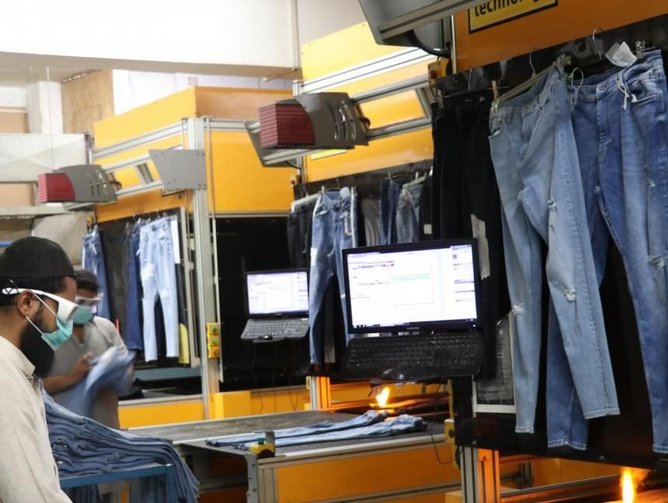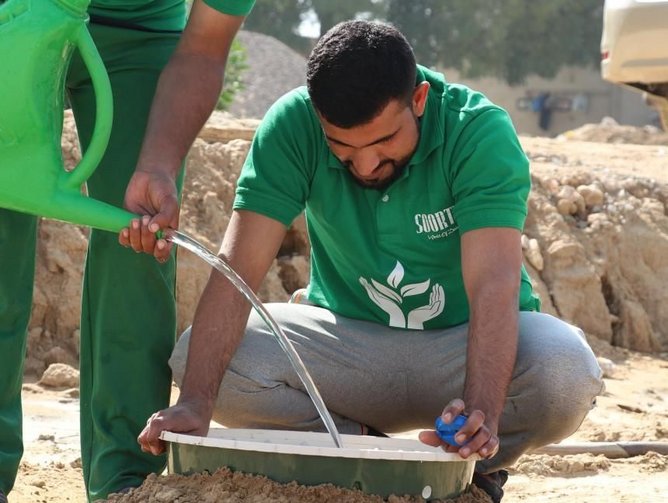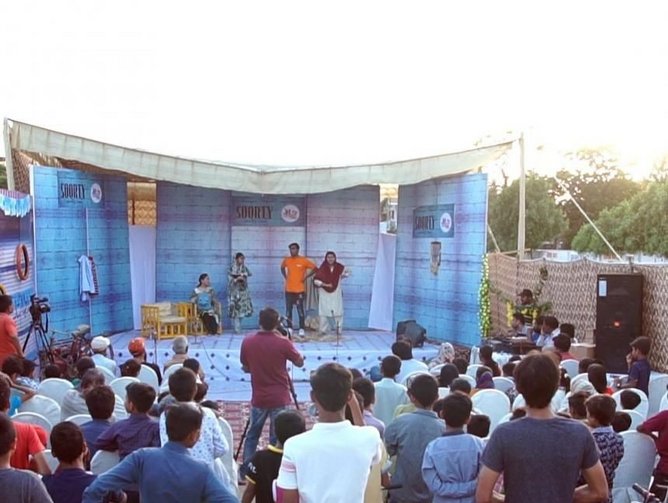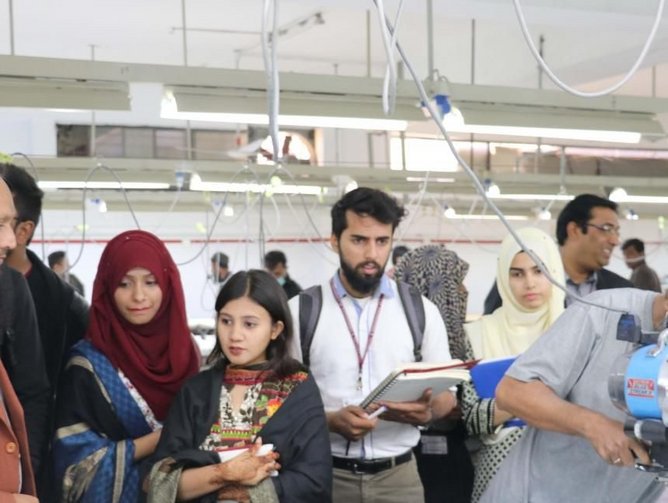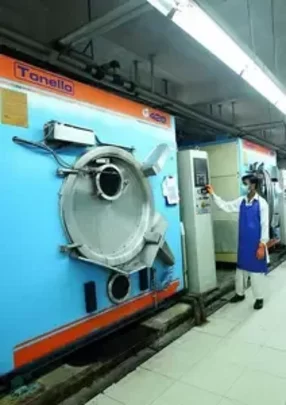Soorty Enterprises: Sustainability as an element of business
The denim industry is a notoriously inefficient user of natural resources, but few are more aware, concerned or proactive about this fact than Soorty Enterprises. While its global operations span Bangladesh, Turkey, the Netherlands and the US, the firm’s deepest roots remain in its home country of Pakistan, a region being disproportionately impacted by climate change relative to its emissions. In 2015, a heatwave in Karachi claimed 2,000 lives and Asad Soorty, Director of Operations at the company, laments that such disasters will only become more frequent. “This coastal city, once with pleasant temperatures and a nice sea breeze, is almost perpetually parched,” he says. “About 60% of the country’s population is food insecure, and almost 45% of kids are experiencing stunted growth. All of this is now; and we haven’t yet moved into the era where Pakistan will be the eighth most climate change-affected country.” He stresses, however, that this exposure to the realities of climate change has not focused the company’s sustainability ambitions on Pakistan, alone. “This is a prime example of a country that needs to utilise its arable land more effectively: rather than growing cotton, we should be growing food crops. We want to be a part of this change, and we are working hard to disrupt the industry. But we don’t see it as a Pakistan-centric issue. Climate change isn’t a problem bound by borders; unfortunately, its solutions are.” He adds that, as a textile company, Soorty stands to make a significant impact: the textiles industry, by some estimates, produces more CO2 than the aeronautical and maritime industries combined, as well as being responsible for around 20% of industrial wastewater, globally.
Soorty’s efforts to curb its environmental impact represent some of the most practical and innovative strategies in the industry, and they are driven by adherence to William McDonough and Dr Michael Braungart’s internationally-recognised Cradle to Cradle (C2C) standards. “We want to have a symbiotic relationship with the environment,” explains Mr Soorty. “We think that the C2C design philosophy is the way to go for the entire fashion sector, and it’s a philosophy we subscribe to wholeheartedly.” C2C product certification is awarded to products following a rigorous assessment procedure across five sustainability categories: material health, material reuse, renewable energy and carbon management, water stewardship, and social fairness. Soorty’s proprietary Zero Waste Water dyeing process has been used in a range of denim fabrics that have been certified Gold against these metrics. The complexities of the next-gen solutions are explained by Sarfraz Cheema, Head of Sustainability of the garment division, who is responsible for driving Soorty’s manufacturing processes towards fully sustainable solutions: “We have adopted the Tonello UP denim washing technology, enabling us to process the garments with a liquor ratio of 1:2 and thereby process 1kg of fabric using just two litres of water. In the conventional process, the ratio is as high as 1:8, so we have reduced water usage in this process by 75%.” The company is also using nebuliser technology that dyes the garments through a water-chemical cloud, itself saving 95% of the water used conventionally. The bleaching process is perhaps the most impactful, as it uses no water at all, Cheema explains. “To bleach, mercerise and decolour the garments, we use ozone, which is a very aggressive gas,” he says. “Ozone makes it possible to complete these processes without any chemicals or water. It is reduced to Oxygen after being used.” Any wastewater is collected and treated at the company’s Effluent Treatment and part of it goes through the reverse osmosis plants for reuse in the manufacturing cycle. Soorty has its own jeans recycling facility, where it collects leftover denims and creates recycled cotton from it. This is blended with virgin cotton to minimise the need for fresh cotton to be grown and processed.
Along with its work towards sustainable manufacturing, Soorty is also engaged in myriad corporate social responsibility (CSR) projects as a means to benefit society, alongside mitigating its environmental impact. When asked about the company’s successes in this area, Mobeen Chughtai, Manager of Corporate Communications and CSR for Social Sustainability and Community Relations, replies, “I think it depends what you mean by ‘success’ – we don’t view our CSR as separate from the business, because it isn’t. If we don’t exist to have a positive effect on society, there will be no society for us to exist in. If we can do that then yes, we will be successful.” Whatever your definition of success, it cannot be denied that Soorty has conducted a series of impactful CSR programmes and initiatives across Pakistan, including those in education, health and social welfare, but its CSR program is evolving beyond conventional interventions. “In the last few months, we have focused our efforts on two primary issues: mitigating climate change and empowering women,” continues Chughtai. “Female empowerment is of special significance in the developing world, where women find it much harder to secure their God-given rights or access to basic services, such as healthcare, education and justice. In August of this year, we launched a unique project in Pakistan: the Soorty Enhancing Women Service (SEWS) project. It will enable and encourage the employability and empowerment of women from low-income backgrounds – the first such UN SDG-compliant, multi-partner venture launched by a for-profit entity in Pakistan, to help underprivileged families.” Chughtai stresses that climate change, however, is the core existential crisis of our times, and Soorty is leveraging innovative technologies outside of its manufacturing processes to address the challenge head-on. “We are in Phase 2 of our Forest Rescue Initiative, designed to reclaim arable land from the Thar desert,” says Chughtai. “For our tree planting strategy, we have partnered with Forests4All, a plantation network from the Netherlands, along with Danish botanical innovator Groasis to use its patented Waterboxx® technology.” Waterboxx® circumvents the difficulties of limited rainfall and a deep water table by passively watering saplings over the course of a year. “In the two or three months required for a seedling’s roots to reach the groundwater, you must water them. A vast majority of planted saplings simply die off because one: there is no water to give them; and two: there is nobody to water them. With Waterboxx®, you only need to add water once each year,” Chughtai enthuses. “Under this initiative, we also plan on gifting an Urban Forest to Karachi City.”
As the company moves to expand its operations in the US, Mr Soorty is confident that the company has a value proposition that will keenly differentiate it in the highly competitive market. “Our company is a global concern, from our multiple country of production model in Bangladesh and Pakistan to our design studios in Manhattan, Amsterdam, Karachi and more,” heexplains. “Soorty provides more than just manufacturing. We exist on many parts of the value chain, helping our customers to identify the latest fashion trends and the white spaces in their merchandise offerings. Our strong R&D allows them to have innovative and high-performance denim, while our responsible manufacturing methods offer fully transparent factories that go beyond simple compliance.” It is a testament to the depth and brilliance of Soorty’s CSR and sustainability strategies that they could not all be condensed into the scope of this profile, although it is abundantly apparent that the established brands in the US are set for some fierce new competition in a world where the conscious consumer is rapidly becoming king.
